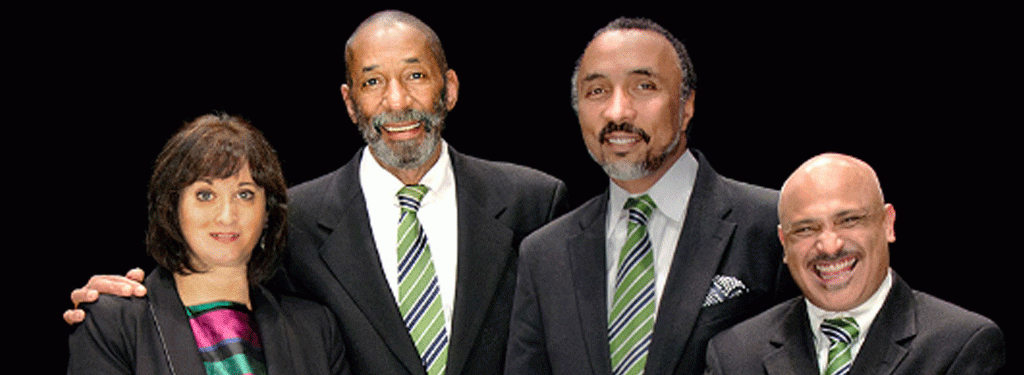
The Ron Carter Quartet took the stage on Saturday, July 4 (the penultimate night of the 2015 Montreal International Jazz Festival) at the historic Monument-National, Quebec’s oldest operating theater. Carter was accompanied by longtime associates Payton Crossley (drums) and Rolando Morales (percussion), as well as veteran jazz pianist Renee Rosnes, a relatively new member of the group. The band was dressed in suits and ties that harkened back to a bygone era of jazz, when Carter was positioned at it’s forefront. Apparently, he always buys ties in threes since Crossley and Morales each had the same one.
The quartet instantly found a deep rhythmic pocket on the opening modal swing tune, which began a seamless mini-set of five absolute gems including “Seven Steps to Heaven” and “Flamenco Sketches” from the Miles Davis songbook. “One of the advantages of leading my own group”, Carter remarked, “is I get to play my favourite tunes… the way I want”. Carter, one of the contributing members of the classic ’60s Miles Davis Quintet, continues to have a penchant for tunes from the Davis repertoire. It is interesting to note, however, that the tunes Carter chose for this set are associated more with Davis’ groups prior to 1965, the year Carter joined the band. It was clear as well that Carter favours bossa novas and other Latin styles, giving Morales a place to shine.
In terms of tempo and time feel, there was absolutely no question as to who was in charge of controlling the beat. Carter provided impeccable time from centerstage, navigating the group through the 105 minute set like a six foot four steamship rudder through familiar territory. In contrast to his tenure with the Miles Davis Quintet, Carter was featured several times as a soloist (another advantage to leading his own group). His unaccompanied solos, in particular, demonstrated an excellent command of the instrument through the use of double stops, pedals and various extended techniques. One such technique was using the strings on the opposite side of the bridge to produce higher partials of the chords. Carter even flashed some of his classical cello knowledge by slipping in a bit of “Prelude” from Bach’s first Cello Suite. The most exciting aspect of Carter’s playing however, was his sound and sense of time. No matter what the style or tempo, Carter was incredibly solid.
It was fascinating to watch Morales go to work as well. He changed instruments frequently, selecting a new bell, shaker, wood block, drum, or cymbal usually every 16 bars (although sometimes he would stick with bongos for as many as 32 bars on fast tunes or switch every eight bars on slower tempos). His contributions to the Latin repertoire were especially welcome, as this rhythmic element is often missing from many jazz interpretations. Morales’ ability to transport the audience to remote areas of the world was uncanny, even magical at times. There were parts of “Flamenco Sketches”, for example, where he employed finger cymbals and castanets, suggesting a Spanish tinge and invoking images of both flamenco and belly dancers. I was less a fan of the percussion on some of the other ballads. Although this could have to do with where I was sitting, I found Morales a little overbearing at times, particularly during piano solos.
Rosnes was outstanding, taking a “less is more” type of attitude and making every note count. Although she was flawless throughout the evening, her feature on the timeless Richard Rogers standard “My Funny Valentine” is what audience members will remember most vividly. The first eight bars was particularly moving, as Rosnes used only her right hand to spell out the melody in single-note fashion, leaving her left hand on her lap. In that moment, Rosnes delivered one of the most fragile yet powerful statements of the evening. Exposing the melody in this way created a haunting effect within the dead-quiet theater and made the rest of the tune all the more engaging as it grew in volume and intensity.
Carter played a solo rendition of “You are My Sunshine” as an encore, showcasing his ability to transform a simple folk song into a creative, meaningful statement that also utilized humour as a way to engage the audience. This was achieved mainly through weaving a famous musical line from Western films (you know the one) in and around the “Sunshine” melody.
It is a little hard to believe that 2015 marks the 50th anniversary of two landmark recordings made by the classic ‘60s Miles Davis Quintet: Live at the Plugged Nickel and ESP. Carter, who turned 78 in May, is a living musical legend who showed no signs of stopping in the seeable future. His parting words? “See you next year”.
